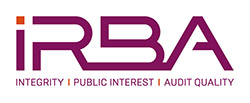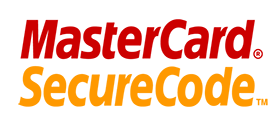MAFR gazetted to enhance auditor independence and protect public interest
|
Embargoed for first publication 2 June 2017 Johannesburg, Friday, June 2, 2017 - The Independent Regulatory Board for Auditors (IRBA) has issued a Rule prescribing that auditors of public interest entities (PIEs) in South Africa must comply with mandatory audit firm rotation (MAFR) with effect from 1 April 2023. The application of such a rule is to strengthen the independence of auditors from their clients following concerns from the regulator, including the extended lengths of audit relationships, some in excess of 100 years. The Standing Committee on Finance held public hearings on the matter of audit firm rotation during February and March this year which served to highlight concerns not only around a lack of independence, but also around the need for accelerated transformation and de-concentration in the audit profession. Says Finance Minister, Malusi Gigaba: “There are 4283 registered auditors in South Africa and over 300 JSE-listed entities which have a combined spend in audit fees amounting to around R4bn, making it an important part of the financial sector. Despite there being many audit firms, much of the JSE-listed audit market is still retained by the big four global audit firms. This concentration has made it difficult for South African black-owned and other audit firms to gain access to the market. “While mandatory audit firm rotation will address the independence concern, it might not immediately address the need to broaden capacity and increase access to opportunity, although we believe that these outcomes could be advanced in the long term. The Board has assured us that it shares our concerns, around broadening access and transformation, and will work to develop complementary initiatives to address the broader transformation of the profession.” Says Bernard Agulhas, CEO of the IRBA: “The IRBA’s overriding responsibility is to protect the interests of the investing public, whether it is those directly invested in the capital markets or those ordinary South Africans who are invested through mandated investments such as pension funds or retirement savings. “The issuing of this Rule is aligned to global concerns expressed by other international audit regulators that the compromised independence of auditors impacts negatively on audit quality and can result in inappropriate audit opinions which may result in flawed investment decisions.” Continues Agulhas: “Independence is the cornerstone of the profession and the independence of auditors provides investors with the assurance that the financial statements on which they rely are credible. “The study of JSE-listed entities, audit tenures and relationships of auditors with their clients that the board initiated turned up too many examples of excessive length of service and many close relationships and history between auditors, audit committee chairs and CFOs, whether real or perceived. In addition, the country cannot afford the cost of another corporate collapse.” Independence is also critical to the ability of external auditors to fulfil their duty to notify the IRBA of irregularities uncovered in the process of an audit as required by Section 45 of Auditing Profession Act 26 of 2005 (APA). The Reportable Irregularities (RIs) process is key in the fight against corporate fraud and corruption. The sharp increase in inspections findings and decline in audit quality, reported in the Public Inspections Report 2016, points to auditors exercising less than the required level of professional scepticism – this situation is highly likely to occur when the relationship between the auditor and client is too cosy, and as audit tenure increases. This is also likely to impact whether or not RIs are reported to the IRBA as required by the Act. The Public Inspections Report included 48 instances of RIs not being reported by auditors. The Act further requires the audit regulator to refer RIs to the relevant authorities for further investigation. It is therefore in the public interest that the independence of auditors is safeguarded by the strictest of measures. Says Gigaba: “South Africa is ranked number one in the world by the World Economic Forum for the strength of its auditing standards and has held this ranking for seven consecutive years. It is imperative that we continue to improve on standards and measures to protect investors in order to retain confidence in the credibility of our capital markets. “This will encourage investment, economic growth and increased employment, thereby helping us to achieve our economic objectives of growing an inclusive economy.” Mandatory audit firm rotation requirements became effective in markets in the European Union from June 2016, following the issuance of the European Commission’s 8th Directive in April 2014. The Financial Reporting Council in the United Kingdom incorporated mandatory audit tendering for FTSE350 companies every ten years on a comply or explain basis into its UK Corporate Governance Code in 2012. In Africa, provisions for mandatory audit firm rotation are in effect in Nigeria, Kenya and Mauritius. Other regulators in other countries in Africa have expressed interest in making rulings for MAFR as well. The Rule requires that auditors must serve for a maximum of ten years before rotating off the client for a cooling off period of five years, before being eligible to audit the client again. The effective date is 1 April 2023 beyond which no audit tenure may exceed ten years. Based on recommendations made in submissions received during the consultation process, the rule has been extended beyond auditors of listed entities to incorporate auditors of Public Interest Entities (PIEs) which would include, for example, non-listed pension funds and organisations that operate in the public interest. The Rule also has transitional provisions for cases where joint auditors are appointed to ensure that both audit firms need not become ineligible at the same time at the effective date. Ends More about the IRBA: The IRBA is a public protection statutory body established to protect the financial interests of the public by ensuring registered auditors and their firms deliver services of the highest quality. It upholds audit firm independence to ensure that audit quality is such that it enhances the accuracy and credibility of financial performance reporting. In this way, the IRBA has an important role to play in building the reputation of South Africa as an investment market for both local and global investors and driving economic growth for the country. As an internationally recognised regulator of the auditing profession and other assurance services relevant to the South African environment, it has been recognised by the World Economic Forum as the top independent audit regulator worldwide for seven consecutive years for the strength of its audit controls and standards. The IRBA also registers suitably qualified accountants as auditors, who must adhere to the highest ethics standards, and promotes the auditing profession through the effective regulation of assurance conducted in accordance with internationally recognised standards and processes.
|





